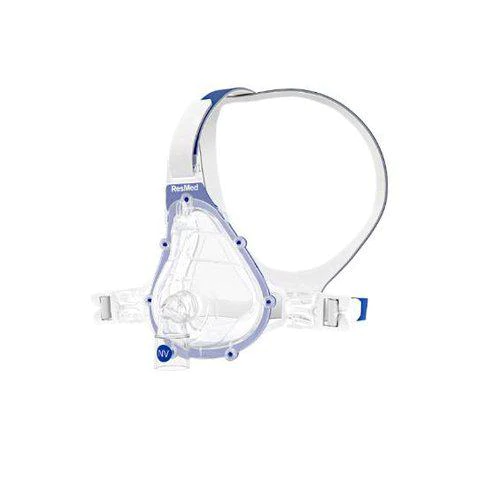Topics: Sleep Apnea, Insomnia, cpap, Sleep Health
As the season changes and cold weather sets in, running nose, watery eyes, sneezing, and coughing become common. That’s because these are the times when people are most vulnerable to cold and allergens such as dust mite, pet dander, pollen, and molds that can cause various types of allergies. And if you suffer from obstructive sleep apnea (OSA), whether diagnosed or not, cold and allergies will negatively impact your sleep.
So here’s a look at how exactly allergies can aggravate OSA, and what you can do to minimise the effects
Cold and Allergies Disturb Sleep
If you are prone to catching colds or allergies, you would know the discomfort they cause and the impact they have on everyday activities. You feel unusually tired, experience headaches, fever, and memory problems. However, one of the biggest fallouts of catching cold and allergies is discomfort while sleeping.
Numerous studies have revealed that people suffering from hay fever and other allergies are more prone to insomnia and, therefore, run a greater risk of obstructive sleep apnea. This is because allergens in the air cause irritation and inflammation in the nasal passages, causing bouts of sneezing. This can lead to narrowing of the airways and difficulty in normal breathing, thus disrupting the night's sleep. Lack of a restful sleep further compounds the problem and increases the risk of obstructive sleep apnea (OSA).
And this is a vicious cycle because the lack of good sleep reduces your immunity against cold and allergies. Research shows that people who do not take adequate rest—for any reason, whether professional or lifestyle related—are four times more likely to catch cold than those who have had adequate rest. In fact, a study conducted by Harvard University has revealed that when exposed to the cold-causing rhinovirus, people who do not get the minimum seven hours of sleep are more vulnerable than those who get eight or more hours of sleep.
So, what should you do?
The common treatment for obstructive sleep apnea is using a continuous positive airway pressure (CPAP) machine. It comprises a mask which is connected to a hose pipe, which in turn is connected to a small machine that pumps air into the patient's airway.
However, when patients catch cold or allergies, a blocked or running nose can make it difficult to continue with the usual CPAP therapy. This is especially true for patients who use a nasal mask.
So, How to Sleep When You Have Cold?
In such a situation, it is recommended that patients use a nasal spray or sinus cleaner to unblock the nose that will make it easier to use the CPAP device. The spray is effective for about four hours and may need re-application well into the night, which may be a hassle for patients as it disrupts their sleep.
 Alternatively, patients can consider using a full face mask till they are fully recovered. This will help them breathe through their mouths while using the CPAP device. There are multiple full face masks available on the market that patients can consider according to their need and fitment.
Alternatively, patients can consider using a full face mask till they are fully recovered. This will help them breathe through their mouths while using the CPAP device. There are multiple full face masks available on the market that patients can consider according to their need and fitment.
A good night's sleep is essential for overall health and well-being. With the onset of winters and seasonal changes, being proactive in taking precautions will be especially helpful in protecting against cold and allergies that may cause sleep disturbance. Patients already suffering from or with high risk of obstructive sleep apnea must consult with their medical professionals to understand if they need to change their current CPAP therapy in any way. It could be a change in air pressure, or a change in CPAP masks, that can help you maintain your sleep health in this season.
If this article captured your interest, you'll definitely enjoy our follow-up piece - Sleep Deprivation and Alzheimer's , Why sleep is important, Sleep Deprivation, and Effect of Sleep Deprivation on Performance.
